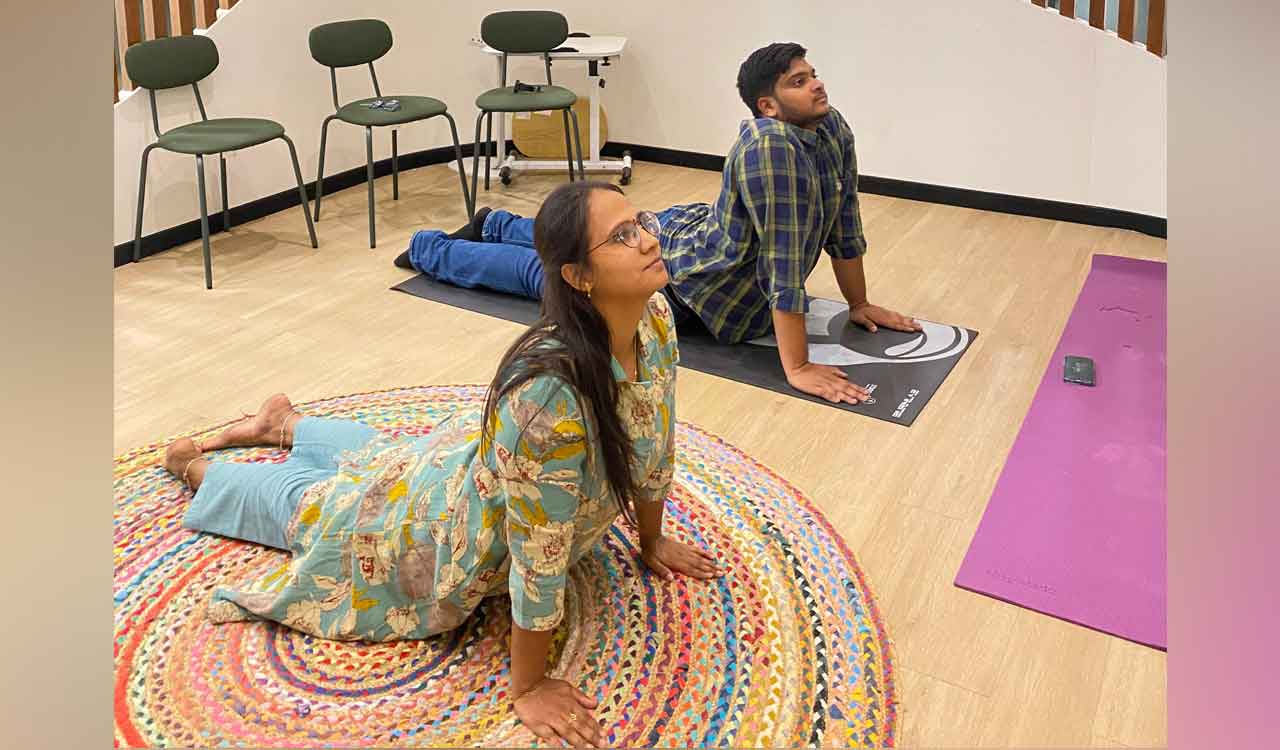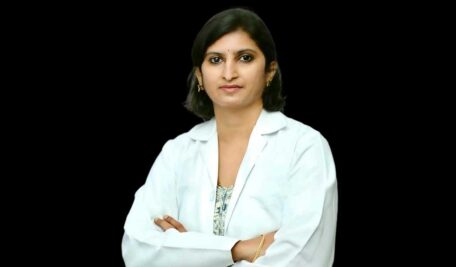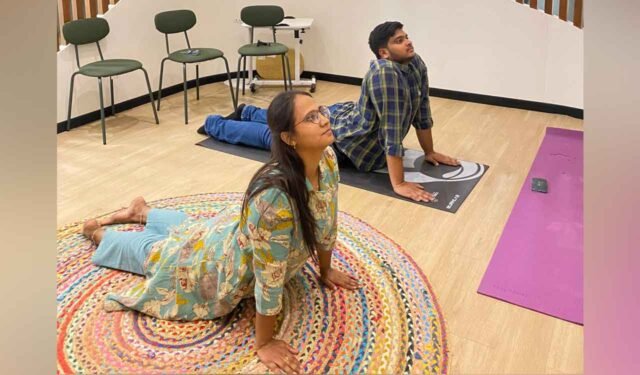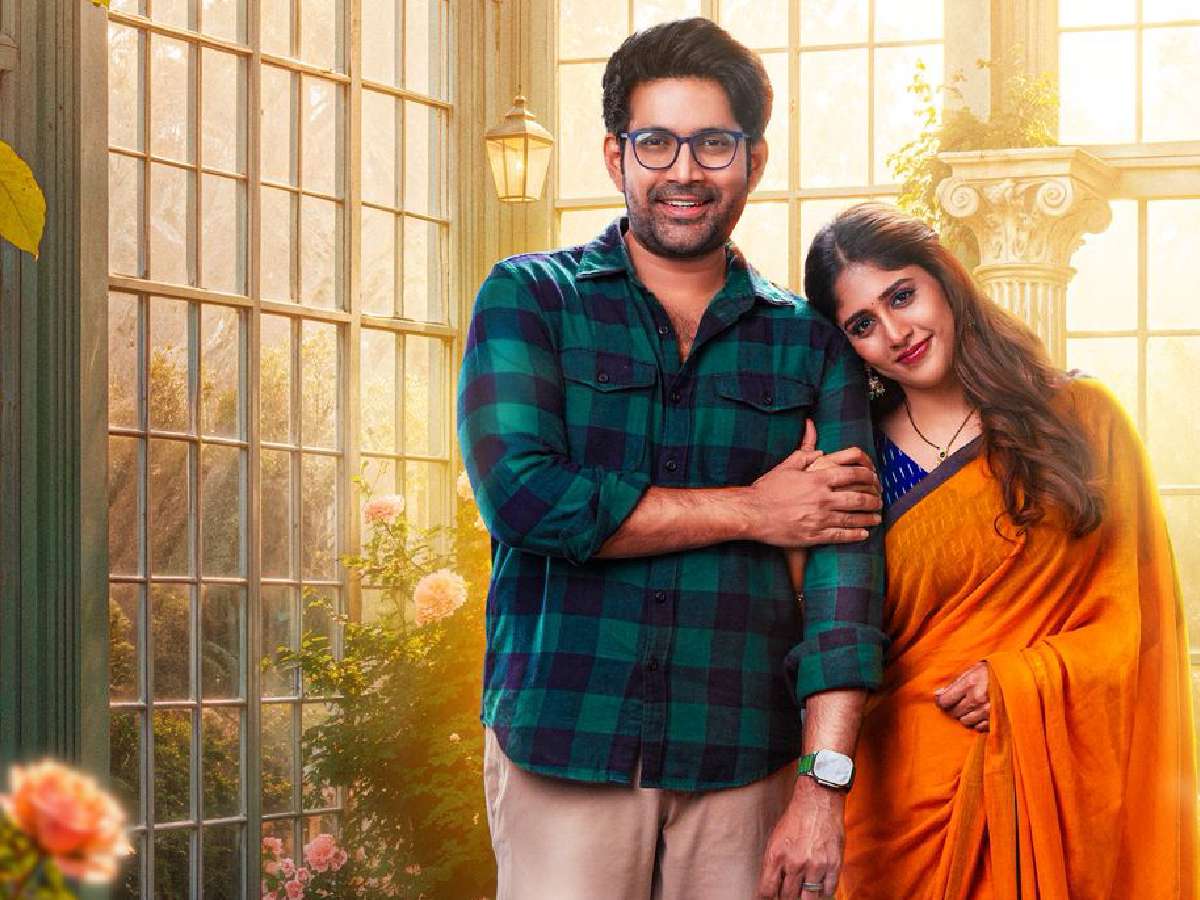Hyderabad-based psychiatrist Dr Jyothirmayi Kotipalli is pioneering the use of Yoga as a complementary therapy in mental health care. From anxiety to ADHD, her integrative model blends traditional Indian techniques with modern psychiatry to improve emotional regulation and neurodevelopmental outcomes
Updated On – 25 June 2025, 07:23 PM

Yoga can help check ADHD and improve mental health
Hyderabad: In a unique attempt to explore the possibilities and promise of Indian traditional systems and practices, a senior psychiatrist from Hyderabad has embraced Yoga as a therapy to address mental health disorders and enhance neurodevelopmental care among patients.
Within a few months of adopting Yoga therapy, Dr. Jyothirmayi Kotipalli, Founder and Chief Psychiatrist of Manaha Clinic, said she has witnessed firsthand how the age-old Indian practice can activate specific healing pathways in the human brain that traditional mental healthcare often overlooks.
“We should recognize the limitations of existing medications and psychotherapy for patients with mental health issues when used in isolation. Without diluting modern psychiatry, we aim to deepen it through ancient Indian, yet biologically relevant, tools,” she says.
For patients with anxiety disorders, where the autonomic nervous system is chronically aroused, employing breathing techniques like Nadi Shodhana and restorative Asanas to increase vagal tone, has significantly helped. In OCD (Obsessive Compulsive Disorder) patients, where compulsions stem from intrusive neural loops, Kundalini-inspired pranayama and meditative techniques help interrupt these loops by training both breath control and attention redirection, Dr. Jyothirmayi explains.

Dr Jyothirmayi Kotipalli
“We have seen patients experience improved emotional regulation and even better adherence to their therapy when Yoga techniques are integrated. This is not merely relaxation. It is an evidence-based method of modulating heart rate variability and reducing cortisol,” she says.
Surya Namaskar is also employed to counter psychomotor retardation in cases of depression. “More than once, I’ve seen a patient’s affect lift subtly after just 20 minutes of mindful movement,” she shares.
Dr Jyothirmayee highlights that both children and adults with ADHD respond remarkably well to body-based therapies. For children, sessions are adapted using visual cues, storytelling, and sensory tools.
“Techniques like Bhramari Pranayama, often dismissed as simplistic, can significantly improve sensory processing and attention when repeated consistently. It’s not Yoga for Yoga’s sake, it’s Yoga for focus, impulse control, and motor integration,” she says.
Yoga and even naturopathy are not alternatives. “If used properly, they can amplify clinical outcomes, empower patients, and reintroduce agency into their recovery journey,” Dr.Jyothirmayi adds.







